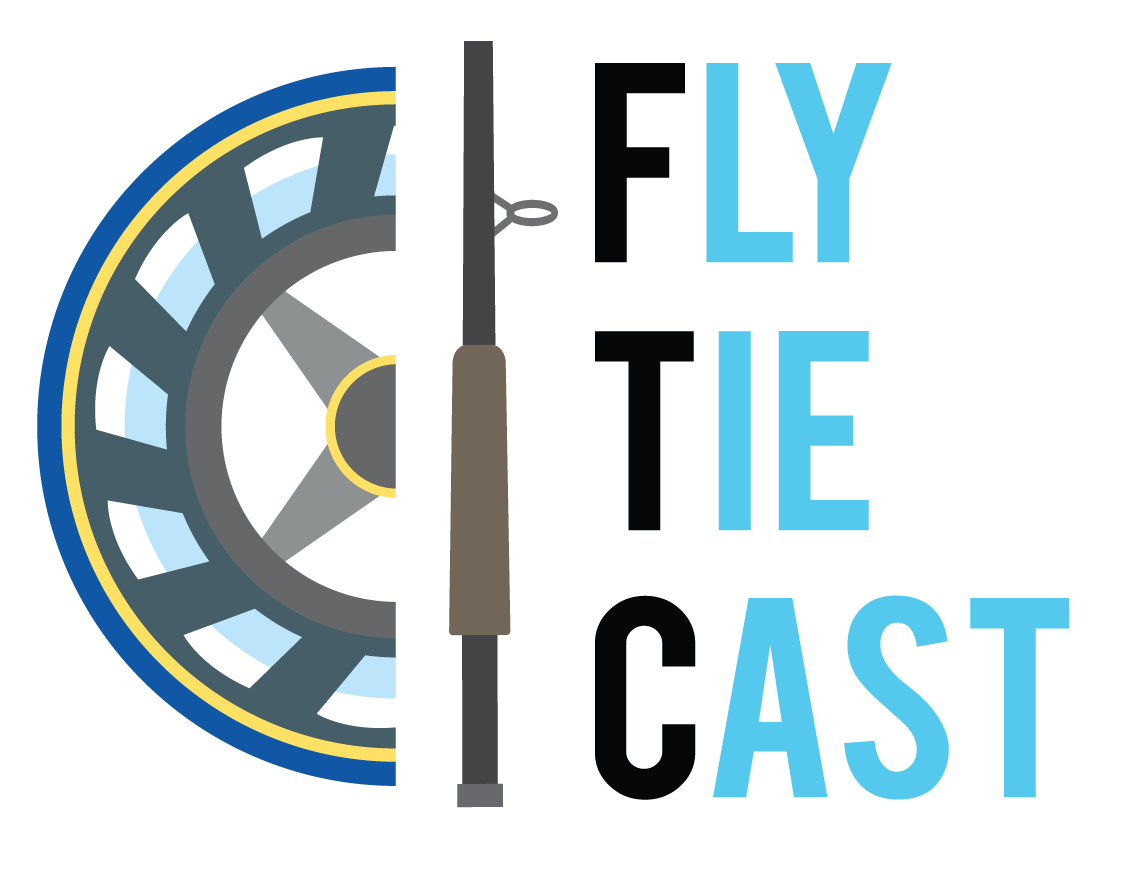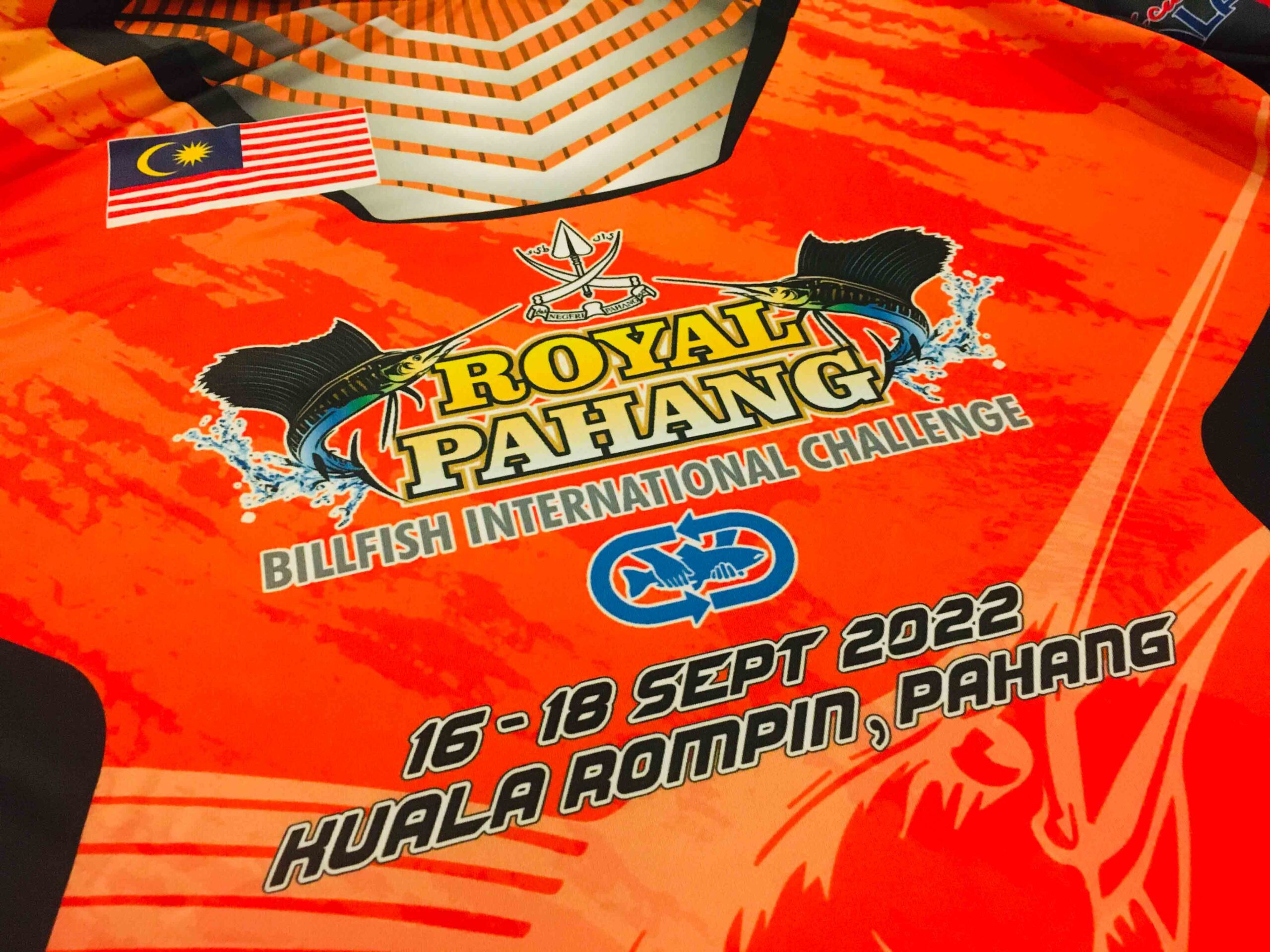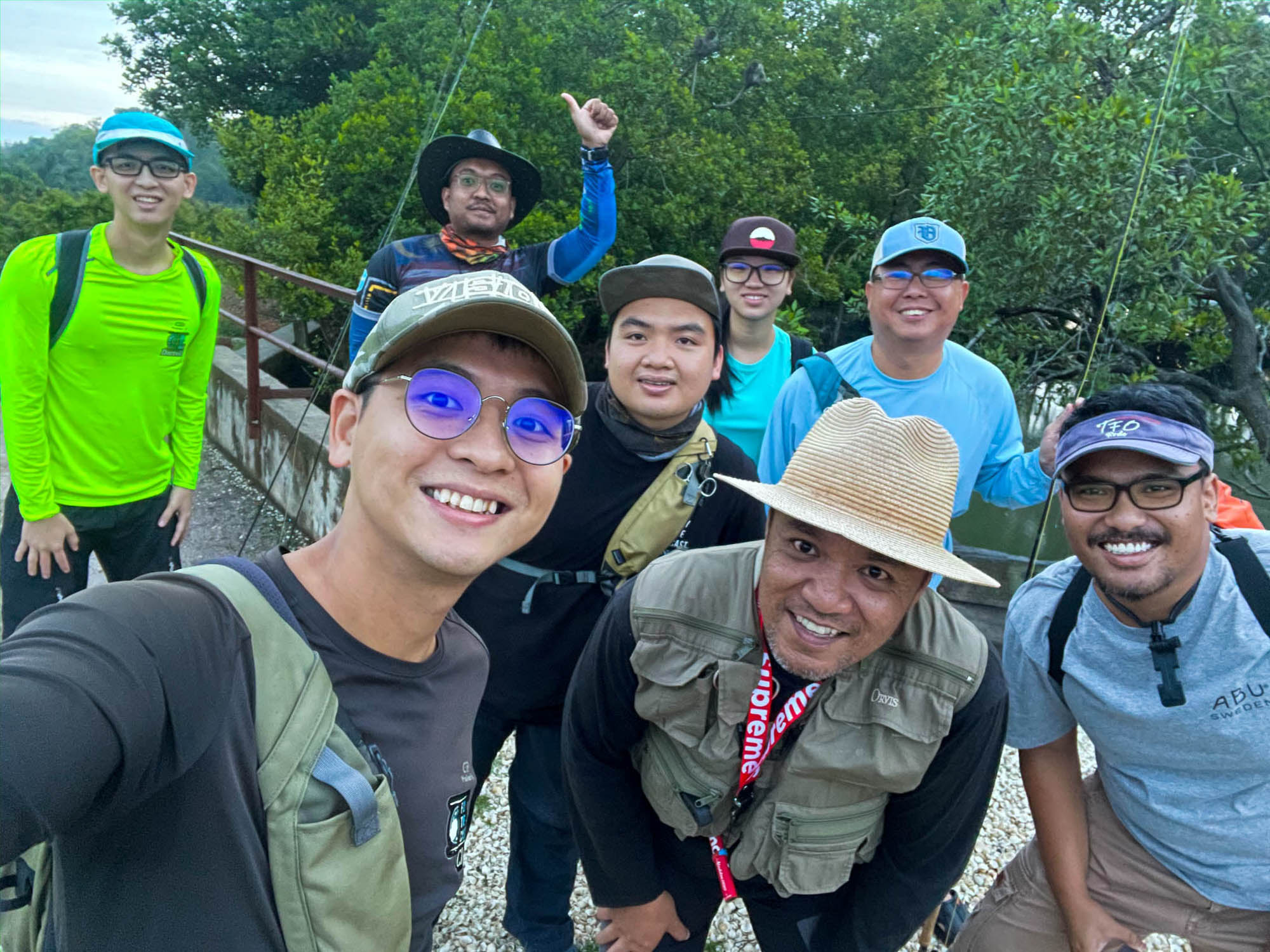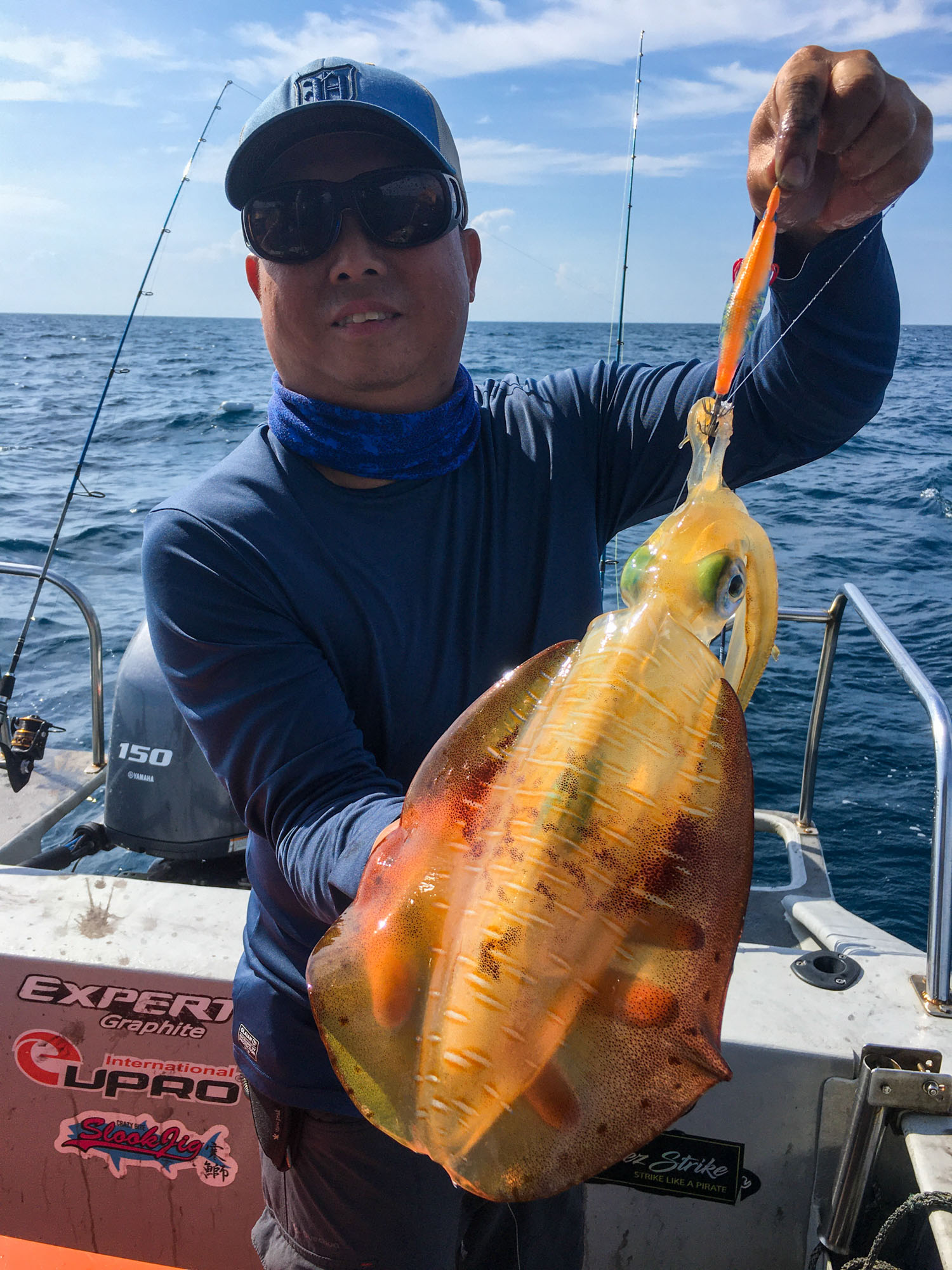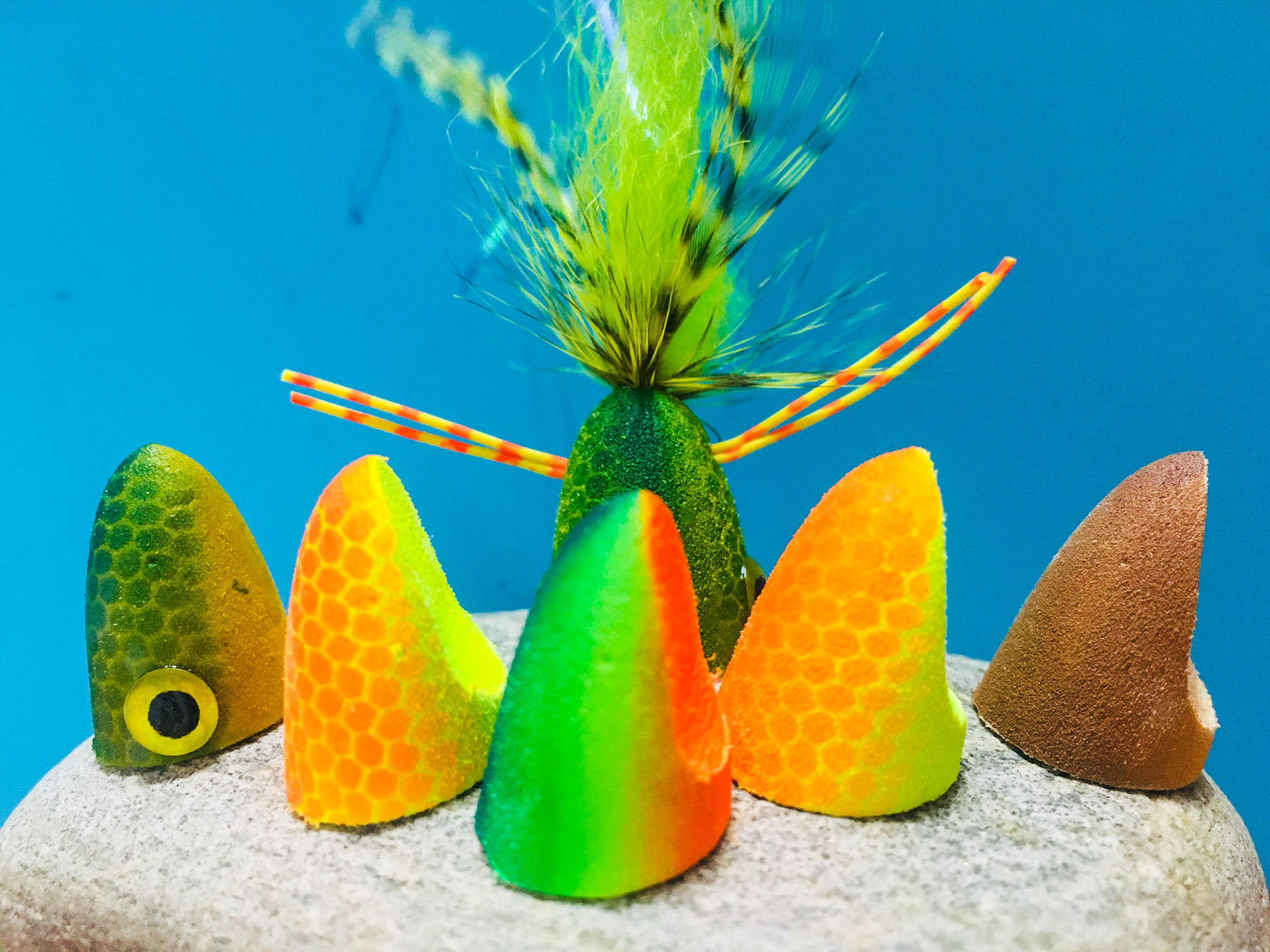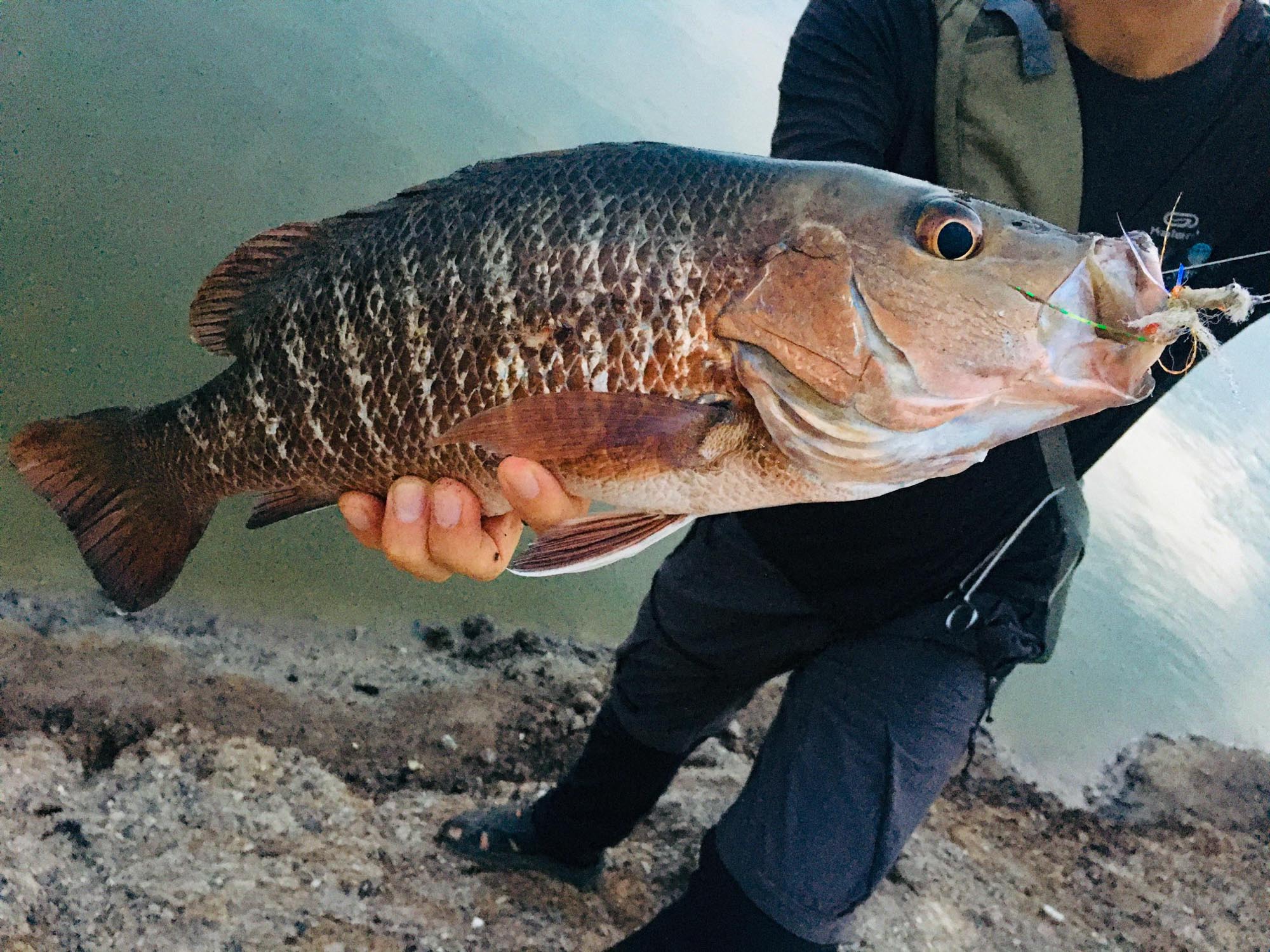Royal Pahang Billfish International Challenge (RPBIC)
Royal Pahang Billfish International Challenge (RPBIC) Through the eyes of Blue Water Anglers Brandon Ho FFI CCI RPBIC is the most prestigious billfish fishing competition in Malaysia and since its inception in 2004, has attracted teams from all over the world, each with one goal in mind, catching, tagging and releasing the magnificent billfish in the waters off Rompin. Being a fly angler, I have been chasing the Rompin sailfish since 2020 and the thrill of hooking and landing one has never ceased to excite me. Chasing these magnificent fish has been on my bucket list since I first heard about their acrobatic jumps and blistering runs which could reach 110km/h. James Isaac was instrumental in helping me land my first sail on fly. Every year without fail, we will book Capt Steven Chong’s boat for our rendezvous with the Rompin sails. With the pandemic closing the borders, we were lucky to be still able to fish locally. Having booked our slot for 17-18 Sept 2022, without knowing that the RPBIC would be held, we were busy tying flies, preparing our fly fishing gear for our annual sailfish pilgrimage. Later, we learnt that the competition would be held and we decided to give it a go. Having only landed one sailfish on conventional gear prior to this, it was a foolhardy decision. With our usual sailfish comrades, a team was formed and after much brainstorming, Blue Water Anglers came into being. James, Clevin, Nic and I made up the team and with Capt Steven as the skipper, we were in good hands. We registered for the event 5 days before the closing date and from then it was a chaotic rush to get our gears ready. Rod and reels were sourced to supplement whatever basic gear we had and Boon Cheng came to our rescue by loaning us some top quality gear from Penn and Abu Garcia. We arrived at Rompin Beach Resort (RBR) on a very wet Friday afternoon. The unusual thunderstorm was not expected and it caused concern for the next two days of competition. Rain was forecast for the weekend and rough sea condition was expected. But from the excited faces of the participants and confident demeaner of the organizers, all looked good. Fishing would be competitive and fun, rain or no rain. After registering our team and collecting our goodie bags, we headed to our homestay, a comfortable two-storey house with 4 bedrooms and 3 bathrooms. It was perfect for the 4 of us. You know this is a homestay for anglers when you see a large chest freezer on the porch and rod holders in the living room. Dinner was at the famous Rompin Baru Restaurant and the highlight of our meal was the Sizzling Hot Plate Squid, which happened to be in season during this time. After dinner, we were back at the homestay for some last minute preparations. FG knots were retied with fresh leaders, equipment was checked and rechecked. Contents of tackle box were recounted to make sure everything we need for the competition was there. It was going to be hard to sleep that night!! We were up at 6 am and within minutes all our gear was loaded and we headed out for our Nasi Dagang breakfast, a traditional meal that consists of bonito cooked in thick curry sauce, riced steamed with coconut milk and pickle vegetable added to the side. It is one meal I would not miss when I am on the East coast of Peninsular Malaysia. We arrived at the jetty slightly after 7 to meet Capt Steven. His boat was park a short distance away from the event jetty. A short 5 minutes cruise, we arrived and went ashore to collect our tags and boat stickers. We also had a draw to select our marshal for the day. A fine gentleman by the name of Mizal, who is always ready with a smile. While waiting for the flag off, our anticipations rose. I still could not believe that we were actually part of the RPBIC. Boats were lined up and the captains were in their pilot seat, participants looking at each other, sizing up the competition. This year there were only a total of 14 teams and some came as far as India, Australia, Singapore and of course the host country, Malaysia. The siren sounded and the we were off! We were speeding towards the FAD, locally known as the “unjang”. The first order of the day was to fill up the live bait well. Multi hook jigs or better known as Apollo jigs were set up. The plan was to have 3 anglers jigging for baitfish and one to remove the hook. Every minute counted and when we sensed the boat slowing down, we all jumped into action. There was no time for small talk and jokes. Even fishing for baitfish was stressful. After 30 minutes, Capt Steven looked at the live well and said, “ Ok. Enough. We head out now.” I estimated that there were an approximate 30 or so fish in the live well. The first spot was about an hour and a half away. Fishing for sailfish is like a gamble. If the sailfish are at the predicted spot, you would have a good catch, but if they are not, then it was time wasted travelling. Moving about to find fish is time consuming and will cost you the chance at catching them. Competition like this depends on luck as much as skills. Having a knowledgeable and skillful captain is essential. Half the battle is won when you have the right Captain and Captain Steven is one of the most sought after captain for sailfish in Rompin. On the way to the sailfish grounds, we had a strategy planning and everyone had a clear idea of what to do. As we were approaching our fishing ground, we all scanned the distance to look for birds. Hovering birds was a sign…
